All issues

Volume 12, Issue 2
Displaying 1-3 of 3 articles from this issue
- |<
- <
- 1
- >
- >|
-
[in Japanese]2004Volume 12Issue 2 Pages 64-69
Published: December 30, 2004
Released on J-STAGE: March 19, 2010
JOURNAL FREE ACCESSDownload PDF (795K) -
Satoko Otake, Sumie Ikezaki, Yoshihiko Yamazaki2004Volume 12Issue 2 Pages 70-78
Published: December 30, 2004
Released on J-STAGE: March 19, 2010
JOURNAL FREE ACCESSThe term health literacy has been regarded a relatively new concept. In this paper, we intended to make clear the concept and its implication through a review of overseas papers about health literacy. Health literacy means literacy related to a specific context about health. Health literacy is more developed and specific skill whereas literacy means general social life skill. Early in the 1990s, the definition of health literacy was narrow, and it was regarded as patients' compliance in medical setting. Jakarta Declaration suggested that health literacy fostered effective participation and was critical to empowerment. Also it was suggested that improving health literacy would led changing the social, economical, and environmental determinants of health. It has also been focused that health literacy is increasingly vital to help people critically evaluate health and medical information. In 2000, Nutbeam suggested that improvement of health literacy was an immediate outcome of health education in health promotion. Consequently the role of health education was anew recognized significant. The measure and application of health literacy is developing, and its further study and conceptual devel-opment is expected.
It is suggestive that the outcome of health education in health and medical care activity is to promote health literacy and that the concept of health literacy poses to change traditional thinking of health professionals.
[J.J.H.P.E 2004; 12 (2) : 70-78]View full abstractDownload PDF (1102K) -
Hiroyuki Takahashi, Yukari Takehana, Yukiko Sami2004Volume 12Issue 2 Pages 80-87
Published: December 30, 2004
Released on J-STAGE: March 19, 2010
JOURNAL FREE ACCESSThe authors named the cognitive skill used for managing oneself: Self-management Skill (SMS) and developed a scale for SMS. Using this scale, the authors identified SMS related to health behaviors. In this study, the authors investigated differences in Self-management skills among various age groups. The participants were 144 junior high school students, 402 high school students, 223 university students and 501 adults. The SMS score increased with age, suggesting that cognitive skills for self-management are learned through experience. For a more detailed analysis, we extracted three factors from SMS using factor analysis. These skills were problem-solving procedures, control of negative thoughts, and ability to delay immediate gratification. The score for problem-solving procedures increased in the early stage while the others, which are regarded as meta-cognitive skills, increased in the later stage. This suggests the importance of considering whether the skills are appropriate to the age group when planning health education dealing with cognitive skills, such as life skills.
[J.J.H.P.E. 2004; 12 (2) : 80-87]View full abstractDownload PDF (919K)
- |<
- <
- 1
- >
- >|